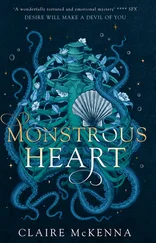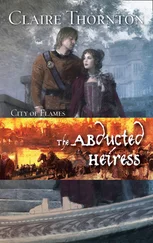“Follow the islands east until you can find a settlement that will take you in,” Weber said. “You’ll need their help, because you’ll die out there on your own.”
Weber told himself this was the right move, despite the couple’s ashen faces. Even if they failed to find an accommodating settlement, at least they would have more time together in relative safety. It was all anyone could hope for this side of heaven. It was more than the captain could hope for.
* * *
WHEN JACK OPENED the door to his stateroom, Gustavo was seated at his desk studying an unfolded map. The smaller man’s chin and neck had stayed smooth throughout the entire voyage with no need of a razor. By comparison, Jack looked like a Viking with his full ginger-blond beard and shaggy hair that covered his ears and nape.
“Sloppy Joes tonight,” Jack said, pulling food wrapped in damp napkins out of the pouch of his sweatshirt and placing it on Gustavo’s desk. “Emphasis on sloppy.”
Instead of grabbing a change of clothes from his closet, Jack pulled out his two empty duffel bags.
“Can you keep a secret?” he asked, without looking back.
Gustavo’s silence was answer enough.
“Maya and I are leaving in the morning,” Jack confided.
He grabbed an armful of clothes from the closet and stuffed them into one of the bags.
“We’re gonna try to find a village on one of the Aleutian Islands and wait this out with them. There’s no reason for the two of us to risk… what might happen to Maya on the mainland. She thinks her family is dead, and I don’t know where mine is ’cause I’m the world’s shittiest son.”
Jack grimaced and finished packing all his shoes and clothes in silence. When he saw a thick stack of printouts on the floor of the closet, he grabbed them and finally turned to his bunkmate.
“Ah! Every poem you’ve ever written,” Jack said, holding them up. “I printed them out in the science lounge.”
He tucked the stack of paper into a duffel bag carefully.
“Taking them with us is kinda like taking you with us, right?”
Gustavo returned Jack’s smile. Jack thought it such a beautiful expression that he reflexively snapped a picture with the camera around his neck.
“You still have film and batteries?” Gustavo asked.
“Three more batteries. And it’s all digital. Nothing’s analog anymore,” Jack admitted. “When the memory fills up, I’ll probably delete everything and start over. I can’t not take pictures.”
Somewhere in early adulthood, Jack had molded into his occupation. There was no way for him to purge photojournalism because it was at his core, despite being useless in current circumstances. Jack put the cap back on his lens and let the camera hang from its strap. It was a familiar weight. Without it, he felt a nagging worry of forgetting something.
“I’ll miss you,” Gustavo said honestly. “There is family and tribe. And there are those we chose.”
He won’t survive Seattle , Jack couldn’t help thinking. The whole trip, Gustavo had acted like death was right around the corner waiting for him. And now it was. But what about Gustavo’s people?
“How remote are your Wayãpi villages in the Amazon?” Jack asked. “Could they still be safe?”
Gustavo took a deep breath.
“Could,” he said softly.
The Wayãpi in the northern state of Amapá lived in the deepest part of Brazil’s remaining forest, Gustavo told Jack. Half of their designated lands fell in a large reserve and the other half fell in a national park. Much of the forest was impassable on foot. Aside from rivers and skies, the only way to access Brazilian Wayãpi lands was one long dirt road that connected to a small mining town.
“My people will fight for their lives,” Gustavo said. “They always have. And when they can’t fight, they will hide. Some say there are still places no white man has seen.”
“Do you know what all this means for them?” Jack asked. He tried to explain one of the many streams of thought that had run through his head when there was nothing for him to do on the ship but think. Gustavo’s poems spoke of the Great Hungry Machine that was modern civilization and the billions of humans who worked its cogs. Everything living was fed to the Machine: forests, animals, rivers, and fish. It consumed and poisoned, seemingly unstoppable until a dark comet rounded the sun.
“For the first time in hundreds of years, the Wayãpi will be left alone in the forest,” Jack told Gustavo. “At least until the comet hits or doesn’t. Promise me you’ll let that sink in. This is the very thing you’ve always wanted, right?”
Gustavo’s jaw hung speechless. The words were already sinking in.
Jack pulled the straps of his duffel bags over each shoulder.
“Bye,” he said.
This moved Gustavo to place a hand on Jack’s shoulder.
“There is no word for goodbye in my language,” he explained. “There is no translation, because my people don’t leave each other. Except for me.”
He held on to Jack’s shoulder, squeezed, and then let go.
In the morning, Jack was gone.
Healy in the Bering Sea December 12 T-minus 51 days to launch
AT A PUNCTUAL 0700 HOURS, Weber met Maya and Jack by the Arctic gear locker. Suitcases and duffel bags lined the corridor by their feet. Both were dressed in sensible civilian clothes: jeans over long underwear, ski parkas, and wool caps. They stood close to each other. Weber felt a glimmer of envy that he squashed immediately.
“I have a gift,” he announced, too upbeat to be believed.
He propped his new fishing rod against the wall and set down his heirloom tackle box.
“This was my grandfather’s,” the captain explained, with a hand lingering on its scarred leather.
Weber had planned to give the box to his son on his sixteenth birthday, but as they say, the best laid plans… Maya opened her mouth and started to protest, then stopped. These were times to swallow guilt and take what you were given.
“Thank you,” she said.
Weber turned and got down to business. The Arctic gear locker stored all equipment and supplies for Healy ’s short-range missions and surveys. Drinking water wouldn’t be a problem with all the snow and rain. Everything else… would be a problem. Weber grabbed a duffel bag and started packing.
“Storms have gotten worse these last few years,” he said, reaching for two folded Gumby suits in small and large sizes. “And with a warmer ocean, there’s a lot less ice as a barrier. I’m hoping you’ll find a good structure on the island. One with a strong foundation.”
He crossed to the other side of the locker and announced each item before placing it in the bag: flashlight, utility knife, first aid kit, fire lighter with a refill can of butane, and weatherproof tarp. Jack laughed. Weber had heard that the photojournalist was quick with a joke or a story of high adventure. He was popular with the Coasties, despite being an outsider.
“Reminds me of those logic puzzles,” Jack explained. “You know, ‘You are crossing to the dark side of the moon.’”
You are crossing the dark side of the moon. Choose only fifteen items to take on the journey and list them in order of importance to your survival…
“One kid always listed the oxygen tank at number five,” Jack said. “Tops.”
“Not on my watch,” Weber muttered.
He showed them how to use the flare gun before packing it.
“I can’t supply you with a real gun,” the captain insisted, more to himself.
There weren’t enough weapons to spare; arming these two would leave someone else empty-handed when they reached mainland.
Читать дальше












